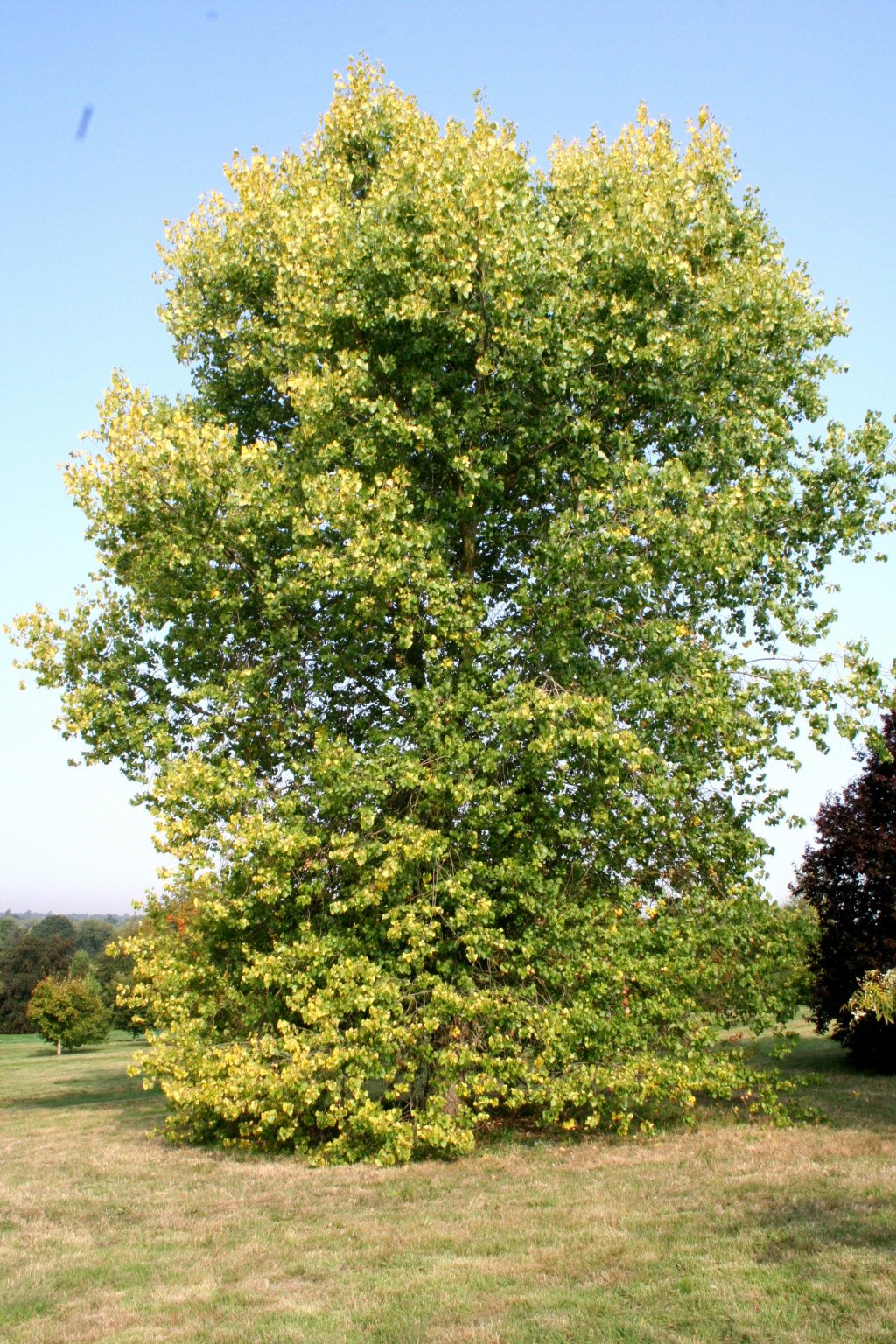Populus × canadensis 'Aurea'
golden Canadian poplar
A vigorous, large deciduous tree to 25m or more, of broadly conical habit. Leaves ovate, bright golden-yellow in early summer, becoming greener in summer, but giving good yellow autumn colour
Synonyms
Populus 'Serotina Aurea'Populus × canadensis serotina 'Aurea'
see morePopulus × canadensis 'Van Geertii'

Buy this plant
Size
Ultimate height
Higher than 12 metresTime to ultimate height
20–50 yearsUltimate spread
Wider than 8 metresGrowing conditions
Moisture
Moist but well–drained, Well–drainedpH
Acid, Alkaline, NeutralColour & scent
| Stem | Flower | Foliage | Fruit | |
| Spring | Yellow | |||
|---|---|---|---|---|
| Summer | Green | |||
| Autumn | Yellow | |||
| Winter |
Position
- Full sun
Aspect
South–facing or West–facing
Exposure
Exposed or Sheltered Hardiness
H7Botanical details
- Family
- Salicaceae
- Native to GB / Ireland
- No
- Foliage
- Deciduous
- Habit
- Columnar upright
- Genus
Populus are deciduous trees, mostly very fast-growing and large, with male and female catkins on separate trees, opening before the leaves. Male catkins are the more ornamental, female ones can be a nuisance from the cottony, wind-blown seeds
- Name status
Accepted
How to grow
Cultivation
Cultivated for their very rapid growth as specimen trees. Useful as windbreaks. Tolerant of any soil other than constantly waterlogged soils. Avoid growing within 40m of buildings as the vigorous root systems may damage drains and foundations, particularly on clay soils; has the potential to become a nuisance
Propagation
Take hardwood cuttings in winter and suckers in autumn or late winter
Suggested planting locations and garden types
- Architectural
Pruning
Pruning group 1 in late summer to avoid infection from bacterial canker and bleeding from pruning cuts. Train as a central-leader standard. Never allow competing leaders to develop. Established trees need little pruning; sucker removal in autumn or winter
Pests
May be susceptible to leaf beetles, sawflies and caterpillars
Diseases
May be susceptible to leaf spots, poplar bacterial canker, tree rusts and honey fungus
Love gardening
Sign up to receive regular gardening tips, inspiration, offers and more
View our Privacy Policy
Get involved
The Royal Horticultural Society is the UK’s leading gardening charity. We aim to enrich everyone’s life through plants, and make the UK a greener and more beautiful place.